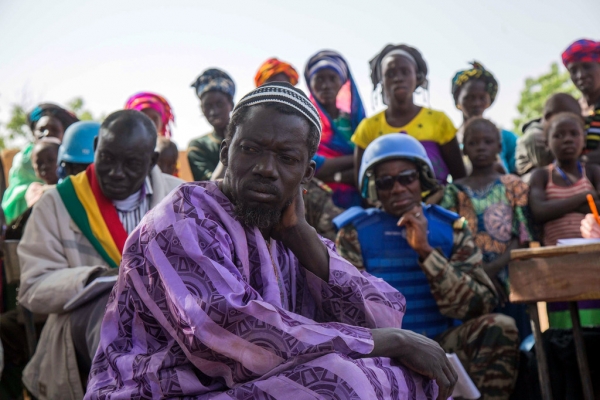Mali’s current troubled situation has its roots in 2012, when a group of rebels declared the independence of Azawad, a region in the North-East of the country, encompassing approximately 60 percent of the national territory. Because of the mismanagement of the crisis, two months later the Malian President faced a coup d’’état.
The Agreement for Peace and Reconciliation in Mali was signed in June 2015 by the Coordination des Mouvements de l'Azawad armed group; however, many lament the slow implementation of its provisions.
Indeed, political stability has deteriorated, the Government has been becoming weaker r and, increasingly has difficulties in safeguarding the Malian’s population security and basic human rights. In the period August 2017 to September 2019, the UN has documented 101 security incidents, in which 94 people died. Moreover, in 2019 alone, almost 1,000 occurrences of sexual violence were reported with about half being attributable to armed groups. In the southern area of the self-declared quasi independent Azawad, numerous schools were closed following terrorist attacks directed towards buildings and teachers.
According to Alioune Tine, the UN Independent Expert on the human rights situation in Mali, “the overall situation has now reached a critical threshold. It is time to recognize the inadequacy of the current security responses so Mali can move to more appropriate alternatives as soon as possible”.
Based on a report of the NGO Refugees International on Mali’s humanitarian crisis, the number of IDPs has now reached the alarming figure of 200,000, the majority of which being children and women. In addition, the number of persons facing food insecurity stands at 650,000 and projections suggest it may exceed 1 million within a year.
On Saturday, 14 December 2019, Mali’s president Ibrahim Boubacar Keita hosted talks with 3,000 representatives of political and armed group as well as civil society and associations, in an attempt to find an agreement and possibly to establish a common road map. However, the main opposition leader did not show up, calling Keita’s attempt a “pure political communication”.
To know more, please read:
https://news.un.org/en/story/2019/12/1052531
https://news.un.org/en/story/2019/12/1053391
Author: Margherita Liverani




